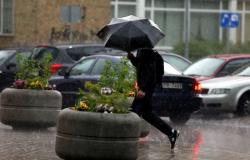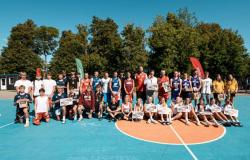Politicians and their decisions are criticized more often than praised. And this is right and justified. However, there are times when correct decisions should not be underestimated. One such decision already in the early 1990s was our decision to consistently do everything to join NATO. The onboarding process itself was neither easy nor self-explanatory. Similar to joining the European Union, a lot was done here as well.fake it until you make it” (fake it till you make it) mode. And yet the work was done. 20 years ago, Latvia became a member of the world’s strongest military alliance, which still makes many self-proclaimed border redrawers and world reorderers cringe.
Of course, politicians and diplomats deserve praise today. However, I would like to single out people who have participated in alliance missions on behalf of our country’s armed forces; and to remember those soldiers who have lost their lives, first and foremost in Afghanistan and Iraq. These are the people who embody the famous Article 5 with their work: we are ready to work on behalf of the alliance in the most dangerous places on the planet – in the firm belief that our allies will come to the rescue when we have to fight for Riga, Vilnius or Tallinn. Those killed in the missions are our guarantee that we will no longer be alone in the event that the beast of Russian imperialism awakened by Putin could turn its claws towards the Baltic. Let’s not underestimate that.
It is in this context that we should not forget how our accession to NATO actually happened. Today, working in the European Parliament, I often hear empty phrases about the West’s openness and readiness to welcome new members into its bosom. Such claims should be treated with great caution, and those who carelessly toss around promises should be held firmly to their word. First of all, no one particularly expected the Baltic states to join NATO. In the 1990s, the Western press was full of statements by prominent politicians that there was no need to “provoke Russia”, that maybe the Baltics could be granted EU membership, but certainly not NATO, and the like. Also, the so-called Partnership for Peace format was actually designed to give its members a surrogate for full participation. The fact that the historic decision was actually made in 2003 was the result of both the global situation and the desperate and energetic efforts of the Baltic States themselves. Let me remind you: when Latvia already sent its soldiers on missions in Afghanistan and Iraq after September 11, no Article 5 guarantees applied to us yet – and yet we did it, knowing what we wanted to achieve. No one wanted to “draw” us there, and NATO is by no means eager to expand, as Russian propaganda has long claimed.
This is a lesson for today as well. If someone thinks that everyone in NATO is looking forward to the admission of Ukraine, then it is not true. Ukraine and we as its allies will still have to sweat to achieve this result. It will not be easy, but I think that Ukraine has already acquired the moral right to full membership in NATO today. It is necessary to learn from mistakes, not to leave Ukraine and Moldova again in the zone of uncertainty about NATO membership, which the alliance unfortunately did at the 2008 Bucharest summit. And it must be offered a clear and rapid perspective of full participation in the near future.
Baltic security has become a new NATO focus, and changes in strategic thinking have already begun. No “tripwire” approach, when Russia conquers the Baltics and NATO then takes them back, is no longer possible or even conceivable. It is therefore necessary to build a new security infrastructure on our external border, both by expanding and strengthening our armed forces, and especially thinking about the presence of allied forces on our territory. Russia must give a clear signal: if you attack Latvia, you will not only attack the Latvian army, but the NATO armed forces, which, if necessary, can realistically involve such military resources that will far exceed Russia’s capabilities. This is the goal to be achieved in strengthening NATO’s Eastern flank.
What should Europe do in this regard? First, to remove the postmodern pacifist glasses, which have for a long time made us believe that all global conflicts have already been overcome. Europe has a regime in its neighborhood that not only openly hates Western values, but is ready to use military force to realize ambitious geopolitical ideas. It is necessary to fight against the conviction felt in many places in Brussels that the war in Ukraine is a temporary crisis, that after some peace negotiated by the Axis, it will be possible to return to business as usual. Second, the EU does not have to compete with NATO as a security alliance. It must support the joint security initiatives of the European NATO countries, both in support of Ukraine and in strengthening its own defense industry. The European Commission cannot command armies. However, it is able to direct European common funds for common things – and security should get a new priority here. The absurd situation when the money of a series of European funds cannot legally be used for security and defense measures is unacceptable. For example: you can insulate buildings, but not in the basements of shelters! This mistake should be corrected urgently. And the commission must keep its word, demanding the rhetorically promised 100 billion for the defense industry.
In short, in guarding the values of Western civilization, NATO and the EU must complement each other. We will have to work with the Americans regardless of the outcome of the November elections – maybe differently than we are used to working during the Democratic administration, but we will have to work. And finally, as is appropriate on such an anniversary occasion, let’s call out the slogan that I heard from one of the reservist course instructors: God, bless Latvia! And NATO.
Ivars Ijabs, Member of the European Parliament (for the development of Latvia)






